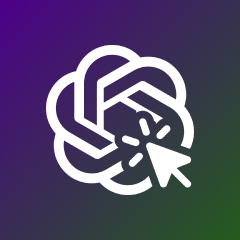AI-powered symptom analysis for quick, informative, and personalized health insights.

Woebot Features:
-
Conversational chat interface that engages users through text dialogues
-
Mood tracking and check-ins (daily prompts to reflect on emotional state)
-
Evidence-based therapies: CBT (Cognitive Behavioral Therapy), DBT (Dialectical Behavior Therapy), etc.
-
Personalized content: responses adapt based on user input and past dialogue
-
Guided exercises, micro-lessons, and therapeutic prompts
-
Journaling, gratitude reflections, coping tools, mindfulness practice
-
Progress insights and reflections over time
-
Safety features: detect concerning language / crisis patterns and respond appropriately
-
Backend support for enterprise / health systems (analytics, integrations)
-
Privacy, encryption, and data control for users
Woebot Description:
Woebot is a conversational AI agent designed to offer users accessible, ongoing mental wellness support through chat and guided prompt-based interaction. From its founding in 2017, Woebot’s mission was to make mental health resources more scalable by combining psychological theory with conversational technology. As a digital companion, it engaged users in daily check-ins, mood tracking, reflection, and therapeutic dialogue rooted in evidence-based frameworks such as CBT and DBT.
Users interacted with Woebot via a chat interface, answering questions about how they feel, what’s on their mind, and undertaking short cognitive or behavioral reflections. Over time, Woebot adapted its responses based on prior interactions, building a relationship-like continuity with users. It would prompt journaling, gratitude exercises, coping techniques, or guided reframing of negative thoughts. The app also monitored mood trends, offered insights, and nudged users toward mindfulness or behavioral strategies when appropriate.
Woebot’s architecture was carefully designed. Although it felt conversational, much of the content was structured, with scripts and branches authored by psychologists and conversational designers, rather than entirely open generative text. This allowed it to remain safe, reliable, and consistent. The system also included safety mechanisms to detect crisis language or signs of distress, and would intervene or direct users to emergency resources when needed.
Woebot Health also developed versions of its platform for partnerships with health systems, employer wellness programs, and digital therapeutics integration. For those enterprise clients, Woebot offered analytics dashboards, integration capabilities, and programmatic deployment. Over its lifespan, Woebot cited data from over a million users and multiple controlled trials demonstrating reductions in depression or anxiety symptoms after weeks of use.
However, in 2025, Woebot Health announced that it would retire the core consumer chatbot as of June 30, 2025, citing challenges with keeping pace in the fast-evolving AI space. The company will maintain relationships with its partners, but the free app version is being phased out.
Woebot’s legacy is in showing that a conversational AI can serve as a complement—not a replacement—to human mental health care, extending support between therapy sessions, lowering barriers to access, and nudging users toward self-awareness and behavioral change. Although its public app phase is ending, the research, architecture, and lessons from Woebot may inform future AI mental health tools.
Social Comments GPT
Generate engaging, context-aware social media comments automatically with AI assistance.
Flim ai
Find cinematic visuals and creative inspiration with AI-powered stills and clips.



